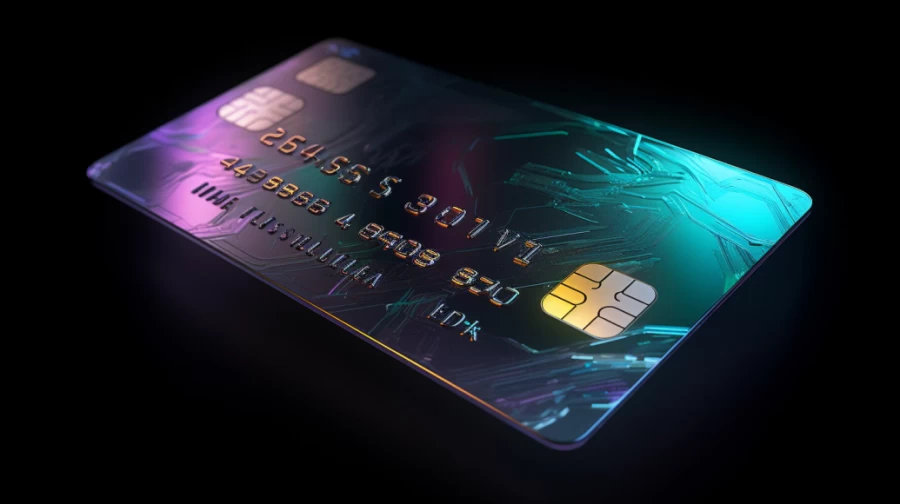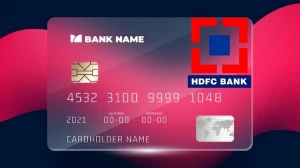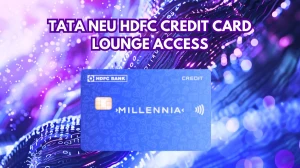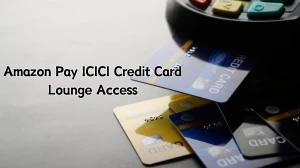
- Home »
- Credit Card »
- Best Starter Credit Cards of November 2023
Best Starter Credit Cards of November 2023
The best starter credit cards, catering to various credit situations and financial needs, offer opportunities for credit building and cost savings, with options like the Discover it® Student Cash Back, Capital One VentureOne Rewards Credit Card, and more.
by Sai V
Updated Nov 16, 2023
On This Page
- Best Starter Credit Cards of November 2023
- What is Starter Credit Cards?
- How Does Starter Cards Work?
- What Are the Types of Starter Credit Cards?
- What Are the Pros and Cons of Starter Credit Cards?
- How to Start Using a First Credit Card?
- What Qualifications Are Necessary to Obtain a Starter Credit Card?
Best Starter Credit Cards of November 2023
A starter credit card is specifically crafted to assist individuals who have limited or poor credit histories in building and enhancing their credit profiles. This category encompasses students, immigrants, and others seeking to establish credit. Opting for the finest starter credit cards can be instrumental in both credit building and cost savings.
|
Best Starter Credit Cards |
Best For |
Annual Fee |
|
Discover it® Student Cash Back |
New users |
$0 |
|
Capital One VentureOne Rewards Credit Card |
Travel |
$0 |
|
Capital One SavorOne Cash Rewards Credit Card |
Dining |
$0 |
|
Capital One QuicksilverOne Cash Rewards Credit Card |
Everyday spending |
$39 |
|
Discover it® Chrome |
Gas |
$0 |
|
Capital One Platinum Secured Credit Card |
No Annual Fee |
$0 |
|
Capital One Platinum Credit Card |
No credit history |
$0 |
|
Deserve® EDU Mastercard for Students |
International students |
$0 |
|
Credit One Bank® Platinum Visa® for Rebuilding Credit |
Bad credit |
$75 first year, then $99 annually |
|
Discover it® Secured Credit Card |
Secured card + rewards |
$0 |
Discover it® Student Cash Back
The Discover it® Student Cash Back card is an excellent choice for new users who want to build credit while earning rewards. It offers 5% cash back in rotating categories each quarter, including gas stations, restaurants, grocery stores, and online shopping. The card also provides a unique feature where you won't be charged a late fee the first time you miss a payment due date. Discover also does not increase your APR if you struggle to pay on time, although late payments can still affect your credit score.
- Best for: New users
- Annual Fee: $0
Capital One VentureOne Rewards Credit Card
The Capital One VentureOne Rewards Credit Card is an ideal choice for those interested in travel rewards. It offers 1.25X miles on all purchases with no annual fee. Additionally, new cardholders can earn a sign-up bonus of 20,000 miles by spending $500 in the first three months. This card provides flexibility in redeeming miles for travel, gift cards, or cash back.
- Best for: Travel
- Annual Fee: $0
Capital One SavorOne Cash Rewards Credit Card
If you love dining out and want to earn rewards, the Capital One SavorOne Cash Rewards Credit Card is a top choice. It offers 3% cash back on dining, entertainment, popular streaming services, and grocery stores (excluding superstores like Walmart and Target). Additionally, you can earn a $200 bonus by spending just $500 in the first three months. This card is perfect for foodies.
- Best for: Dining
- Annual Fee: $0
Capital One QuicksilverOne Cash Rewards Credit Card
The Capital One QuicksilverOne Cash Rewards Credit Card is designed for individuals with average or thin credit. It offers a consistent and unlimited 1.5% cash back on all purchases. This card also comes with several perks, including $0 fraud liability, emergency card services, and identity theft protection. However, it has a $39 annual fee.
- Best for: Everyday spending
- Annual Fee: $39
Discover it® Chrome
The Discover it® Chrome is an excellent choice for those who spend a lot on gas. It offers 2% cash back on gas station purchases and 2% back at restaurants (up to $1,000 in combined spending per quarter), along with 1% cash back on all other purchases. The card also has consumer-friendly terms, including no foreign transaction fee and no penalty APR for the first late payment.
- Best for: Gas
- Annual Fee: $0
Capital One Platinum Secured Credit Card
The Capital One Platinum Secured Credit Card is an excellent option for individuals looking to build or rebuild their credit without an annual fee. It requires a security deposit, which can be as low as $49, and after six on-time monthly payments, you may be considered for a higher credit line. This card is focused on responsible credit use and does not offer rewards.
- Best for: No Annual Fee
- Annual Fee: $0
Capital One Platinum Credit Card
The Capital One Platinum Credit Card is tailored for individuals with no credit history. It charges no annual fee and offers free credit monitoring. While it doesn't require a security deposit like secured cards, it has a relatively high variable APR of 30.49%. This card can help those with average credit boost their credit history.
- Best for: No credit history
- Annual Fee: $0
Deserve® EDU Mastercard for Students
The Deserve® EDU Mastercard for Students is designed for international students, even those without a traditional credit history or Social Security number. It offers one year of Amazon Prime Student membership after qualifying spending. However, its 1% cash back rate may not be the most competitive, and there are other cards with better long-term value.
- Best for: International students
- Annual Fee: $0
Credit One Bank® Platinum Visa® for Rebuilding Credit
The Credit One Bank® Platinum Visa® for Rebuilding Credit is one of the few credit cards for individuals with bad credit that also offers a cash-back rewards program. It provides 1% cash back on eligible purchases, including gas, groceries, and select services. The card comes with free access to your Experian credit score, but it does have annual fees to consider. This card is suitable for those looking to rebuild their credit while earning rewards.
- Best for: Bad credit
- Annual Fee: $75 first year, then $99 annually ($8.25 per month)
Discover it® Secured Credit Card
The Discover it® Secured Credit Card combines the benefits of a secured card with a rewards program. Cardholders can earn 2% cash back at gas stations and restaurants (up to $1,000 in combined purchases each quarter, then 1%). Additionally, all cash back earned in the first year is matched. After seven months of responsible card use, you may be considered for an unsecured card. This card is an excellent choice for building credit while enjoying rewards.
- Best for: Secured card + rewards
- Annual Fee: $0
These starter credit cards cater to various financial needs and credit profiles, allowing individuals to choose the one that best suits their specific circumstances and goals.
What is Starter Credit Cards?
A starter credit card is designed for individuals who have limited or no credit history, making it difficult for them to qualify for traditional credit cards. These cards typically have low credit requirements and are sometimes referred to as subprime credit cards. They serve as a valuable tool for first-time cardholders and those with fair-to-bad credit who want to establish or rebuild their credit profiles.
Starter credit cards may lack certain features and benefits, such as rewards programs, lower interest rates, and minimal fees, which are typically available with cards designed for individuals with better credit scores. However, they offer an opportunity for cardholders to demonstrate responsible financial behavior and build their credit history quickly.
How Does Starter Cards Work?
Starter credit cards serve as an accessible entry point for individuals looking to establish credit, offering a pathway to building a solid financial foundation.
Understanding Starter Credit Cards
Starter credit cards operate as entry-level financial tools designed specifically for individuals who have limited or no credit history. These cards cater to those who are starting their credit journey and aim to establish a solid credit foundation.
Lower Credit Requirements
One defining feature of starter credit cards is their relatively lenient credit requirements. Unlike premium credit cards that often demand a robust credit history and higher credit scores for approval, starter cards are more accessible. They allow individuals with limited credit profiles to begin building their creditworthiness.
Building Credit Responsibly
These cards serve as a means to build credit by providing an opportunity for users to demonstrate responsible financial behavior. Making timely payments, maintaining low credit utilization ratios, and avoiding excessive new credit inquiries are key strategies for building a positive credit history with a starter credit card.
Limited Features and Higher Interest Rates
Starter credit cards typically come with modest credit limits and fewer perks compared to premium cards. While they serve the purpose of establishing credit, they might have higher interest rates. To avoid accruing hefty interest charges, it's advisable to pay off the entire balance each month.
Stepping Stone to Better Credit Opportunities
By using a starter credit card prudently, individuals can gradually strengthen their credit profiles. Consistent responsible use can lead to improved credit scores, setting the stage for access to better financial products with more attractive terms in the future, such as higher credit limits, lower interest rates, and rewards programs.
Join us on a captivating voyage into the dynamic landscape of Credit Cards, where MarketsHost serves as your beacon of knowledge, illuminating the path to financial success.
What Are the Types of Starter Credit Cards?
There are three primary types of starter credit cards include student, secured, and unsecured, each addressing diverse financial needs, from students establishing credit to individuals with limited or damaged credit profiles.
Student Credit Cards
Student credit cards are designed for college students and individuals with limited credit history. These cards have lower credit and income requirements, making them accessible to younger applicants. Students can demonstrate income from various sources, such as part-time jobs or financial aid. Responsible use of student credit cards helps build a positive credit history, eventually leading to access to more rewarding credit options
Secured Credit Cards
Secured credit cards are ideal for individuals with bad credit or a limited credit history. They require a security deposit, usually starting at $200, which serves as the credit limit. This deposit acts as collateral in case of non-payment, but many issuers refund it when an account is closed responsibly or when upgrading to an unsecured card. Secured cards may come with higher interest rates, annual fees, lower credit limits, and other limitations
Unsecured Starter Credit Cards
Unsecured starter credit cards do not require a security deposit and are intended for individuals with poor credit, fair credit, or limited credit history. They are often referred to as unsecured subprime credit cards. However, these cards may come with higher interest rates, increased fees, and lower credit limits compared to traditional cards. Lenders may perceive borrowers with lower credit scores as higher risks.
What Are the Pros and Cons of Starter Credit Cards?
Starter credit cards, while pivotal for building credit and fostering responsible financial habits, present a spectrum of pros and cons that shape their value and potential risks.
Pros of Starter Credit Cards
- Obtaining your first credit card represents a crucial step in establishing your credit history and promoting responsible financial behaviors.
- Timely and complete credit card bill payments lay the foundation for eligibility for lower interest rates in the future, potentially saving you money on loans and other credit products.
- Some starter credit cards provide enticing rewards for your spending, including travel perks like airport lounge access and complimentary hotel stays.
Cons of Starter Credit Cards
- Certain starter credit cards may come with annual fees and lack rewards programs, potentially limiting the card's value for some users.
- Failing to pay your credit card balance in full and on time can result in significant interest charges, which can be financially burdensome.
- Missing a payment due date on your credit card can harm your credit score, emphasizing the importance of choosing forgiving options to avoid negative consequences.
How to Start Using a First Credit Card?
Beginning the journey of using your first credit card involves five essential steps, guiding you from assessing your financial standing to making a well-informed application decision.
Assess Your Financial Position
Before diving into using your first credit card, ensure you have a stable income source. Card issuers typically require evidence of steady income to approve your application. This can include various sources beyond a traditional job, such as public assistance, alimony, or retirement benefits, especially if you're over 21. Having a clear picture of your income is crucial.
Understand Your Credit Score
Your credit score influences the type of credit card you'll qualify for. Applying for a card outside your credit score range might lead to rejection or missing out on advantageous features. Obtaining your credit score beforehand allows you to align your card choice with your current score and financial situation.
Identify Your Priorities
Pinpoint what features and benefits matter most to you in a credit card. Are you aiming to build credit, earn rewards, or enjoy interest-free payments? Having clarity about your primary reasons for using a credit card helps narrow down your options effectively.
Compare Available Options
Explore various credit cards that match your credit score and align with your needs. Some cards might have fewer fees, lower interest rates, or additional perks tailored to your lifestyle, such as extended warranties or credit line increases. Utilizing comparison tools simplifies this process, providing personalized offers without impacting your credit score.
Apply for a Single Credit Card
Once you've selected the best-suited credit card, proceed with the application process. Apply for only one card at a time to avoid negatively impacting your credit score. When applying, gather necessary personal information like your legal name, address, Social Security number, annual income, and residency duration. Being prepared with this information streamlines the application process significantly.
What Qualifications Are Necessary to Obtain a Starter Credit Card?
To qualify for a starter credit card, those under 21 must demonstrate income or enlist a co-signer. Applicants aged 21 and above can apply without mandated proof of income, yet it enhances approval odds. However, furnishing income details remains pivotal for a smoother application process. While technically not obligatory for older applicants, presenting income information significantly bolsters the prospects of obtaining a starter credit card.
Best Starter Credit Cards of November 2023 - FAQs
1. What is a starter credit card?
A starter credit card is tailored for individuals with limited or no credit history, helping them establish or rebuild their credit.
2. How do starter credit cards work?
They offer accessible entry into the credit world, allowing users to demonstrate responsible financial behavior and build a positive credit history.
3. What types of starter credit cards are available?
There are three primary types student cards, secured cards requiring a deposit, and unsecured cards for those with limited credit or poor credit history.
4. What are the pros of starter credit cards?
They help build credit, promote responsible financial habits, and some offer rewards for spending.
5. How do I start using my first credit card?
Assess your financial situation, understand your credit score, prioritize your card needs, compare options, and apply for a suitable card to begin.




